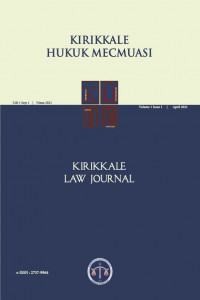JÜRİ YARGILAMASI: DAHA FAZLA DEMOKRASİ Mİ YOKSA DEMOKRASİNİN İDEALİ Mİ? GÜRCİSTAN - BAZI GERÇEKLER VE RAKAMLAR
6 Şubat 2004’te Gürcistan Anayasası’nda bazı değişiklik yapıldı. Anayasa değişiklikleri arasında öne çıkan yeniliklerden biri Gürcistan Anayasası’nın 82. maddesinin 5. bölümünde yapılan yasal ön koşuldu. Bu değişikliğe göre mahkemelerdeki davalar, Gürcistan kanunları ve yasalarında belirtildiği şekilde jüriler tarafından dinlenebilmektedir. Bu anayasa değişikliği bağlamında Gürcistan hükümeti ve sivil toplum kuruluşlarının da çabalarıyla, Gürcistan Parlamentosu tarafından Ekim 2009’da yeni bir Gürcistan Ceza Muhakemesi Kanunu taslağı hazırlanmış ve 1 Ekim 2010’da Kanun yürürlüğe girmiştir. Yeni Gürcistan Ceza Muhakemesi Kanununa göre, Gürcistandaki bazı ceza davalarında bir jüri enstitüsü kurulmuştur. Son zamanlarda, pratikte de, Gürcistan’da jüri üyeleri tarafından dinlenmiş bir dizi ceza davası vardır. Öte yandan – Gürcistan’ın yeni Ceza Muhakemesi Kanununun 226. maddesi uyarınca, suçlamalar belli şartlar altında ileri sürülürse (örneğin kasıtlı insan öldürne gibi), dava jüri tarafından dinlenilmektedir. Mevcut araştırma çalışmasının amacı, Jüri Yargılamasının demokratik değerler bağlamında tartışmak ve jürinin demokratik adaleti tesis etme firsatının ne ölçüde olduğunu incelemektir. Araştırma çalışmasında şu soruları cevaplamaya çalışılmıltır: Jüriyi Gürcistan’da tanıtmak haklı mı? Bir jüri yargılaması, daha çok demokrasi midir yoksa demokrasinin ideali midir? “İdeal” bir şeyin mükemmelliğini ifade etse de “ideal” doğada mevcut değildir. Ancak modern demokratik kurumların birincil işlevi, ideal ile gerçeklik arasındaki boşluğu doldurmaktır.
Anahtar Kelimeler:
Jüri, Yargı Sistemi, Demokrasi İdeali, Yargıç
THE JURY TRIAL: MORE DEMOCRACY OR THE IDEAL OF DEMOCRACY? GEORGIA – SOME FACTS AND FIGURES
The penalties stipulated for crimes are determined by considering the possibility of violating the crime type once. However, it is possible to violate the same type of crime more than once or different types of crimes with one or more acts. Aggregation rules bring solutions to the responsibility of the perpetrator and in this context how to determine the punishment to be given in case of more than one crime committed by a person. According to the majority of Islamic jurists, if the same crime is committed more than once before the penalty is given, one punishment is sufficient. If different crimes with different punishments are committed, as a rule, the punishment of each is given separately. First, the punishment where personal rights are dominant or the death penalty that does not allow the implementation of other punishments is started. If the punishment of different crimes is of the same type, it is contented with the application of the heaviest. The crimes that are the elements of rebellion (bağy), highway robbery (hırabe) and apostasy from Islam (ridde) which are compound crimes are not also punished. However, real aggregation rules are applied in the crimes of rebels like commiting fornication (zina) and drinking wine (şürb) which are not elements of rebellion (bağy). It is essential to apply the material (real) aggregation rules in crimes committed against individuals. Tadahul in hadd is the state of being contented with one hadd penalty due to the crimes committed more than once. A punishment of qazif is given to those accused of adultery with one word or another. In fact, although one has committed as many crimes as the number of victims, one is contented with the punishment of one crime in accordance with aggregation provisions
Keywords:
the jury, Judicary System, Trial by a Jury, Judge,
___
- Abramson Jeffrey, We, the Jury: The Jury System and the Ideal of Democracy, With a New Preface, Harvard, Harvard University Press, 2000.
- Abramson Jeffrey, Is America's Jury System on the Road to Justice?, Journal. Freedom, №11 (23), 2003, pg. 20/21, access date: 05/01/2021.
- Beetham David, Democracy: Questions and Answers, Tbilisi, Unesco, 1998.
- Brochure, Encouraging the Judiciary of Georgia: The Jury Trial: More Democracy or Improving the Image of the Judiciary, 2006, access date: 04/01/2021.
- Conference on Proceedings of the International Conference, Democratization: Theory and Practice, Tbilisi, 1993, access date: 04/01/2021.
- Explanatory Card on the Draft Law of Georgia - Criminal Procedure Code of Georgia, S160, Tbilisi, 2010.
- Frost J William, William Penn's Experiment in the Wilderness: Promise and Legend, The Pennsylvania Magazine of History and Biography, Vol. 107, No. 4, 1983.
- Gabisonia Iuri, Jurors, Magistrates and Conciliation Courts, Tbilisi, Bona Causa, 2008, pg.
- Gabisonia Iuri, Trial by the Jury, Journal Justice and Law, №5, 2005, pg. 64, access date: 05/01/2021.
- Leib Ethan J., A Comparison of Criminal Jury Decision Rules in Democratic Countries. Ohio State Journal of Criminal Law, Vol. 5, 2008. access date: 04/01/2021.
- Law of Georgia On Amendments to the Criminal Procedure Code of Georgia, N5591-IIS, Kutaisi, 24 June 2016.
- Maxwell O Chibundu, Jury Trial and Democratic Values: On the Twenty-First Century Incarnation of an Eighteenth-Century Institution, the University of Maryland, Legal Studies Research Paper No. 2006-45, (December 2006), pg. 13. access date: 05/01/202.
- Supreme Court of Georgia, Statistics of Cases Heard by a Jury, Published: 21/03/2019, http://www.supremecourt.ge/news/id/1909. access date 04/01/2021.
- Tchatchua Vakhtang, Basic Trends in the Origin and Development of the Institute of Jurors, Journal Justice and Law, №3-4, 2005, access date: 05/01/2021. The Constitution of Georgia, S55, Tbilisi, 2011.
- Widmar Neil, Trial by Jury (Common Law Countries), Tbilisi, Meridiani, 2005.
- Yorhend Lars and Kakha Tsikarishvili, Trial by Jury, Tbilisi, Bona Causa, 2009.
- Yorhendi Lars, Court of Jurors, Tbilisi, Bona Causa, 2009.
- Zhorzholiani Gia, Democracy: Ideal and Reality, Tbilisi, Social Research Institute, 1999.
- Yayın Aralığı: Yılda 2 Sayı
- Başlangıç: 2021
- Yayıncı: Kırıkkale Üniversitesi
